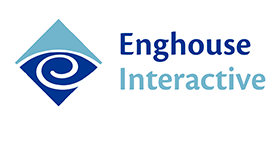Providing a high-quality agent experience benefits both contact centre employees and the businesses they work for.
Engaged agents provide better service to customers, are more productive and less likely to leave.
However, traditionally contact centres have struggled with the agent experience. Much of this is down to the nature of the job.
On top of having to help customers with problems and complaints, the agent role can be repetitive, and subject to close monitoring and pressure to meet strict targets.
Burnout is not uncommon, leading to annual agent turnover rates of 24%, according to ContactBabel.
What Is the Agent Experience?
The agent experience is the sum of the people, processes, tools, and culture that make up working life.
The rise of remote and hybrid working has dramatically impacted this. While the flexibility to work from home can improve agents’ work-life balance, it also brings downsides.
For example, it makes team collaboration more difficult, while supervisors can struggle to identify individuals who might need extra support.
A good agent experience delivers benefits on a variety of levels. Not only are agents happier and more motivated, but this leads to higher productivity, lower absenteeism, and greater staff retention. At the same time, content agents tend to provide better, more empathetic service to customers.
The technology that customer service staff use as part of their day-to-day work is central to the agent experience in a variety of ways:
Empowering Agents
Having access to the right technology gives agents greater confidence. Not only does it help them work more effectively and productively, but it increases their sense of control when interacting with customers. For example:
- A centralised knowledge management system empowers agents through fast access to the information they need to resolve queries. This allows them to focus on understanding the customer’s problem and interacting in an empathetic way – rather than worrying about whether they’ll be able to find the right answer quickly enough.
- A unified communications platform such as Microsoft Teams empowers agents by making collaboration easier. It enables them to get help from colleagues in other departments using online chat and other channels.
- Automation/AI technology plays a role in empowerment by removing repetitive tasks and deflecting routine queries to self-service. This frees up agents to handle more interesting tasks such as complex queries or those that require empathy.
- Self-service workforce management (WFM) solutions give agents control over their working schedules. They can flag when they are available to do overtime, trade shifts with colleagues and request holidays, receiving instant, rules-based decisions.
Enabling Flexibility
The agent experience is improved by providing flexibility about when and where they work. As well as clear policies and processes around flexible working, the right technology should support them, wherever they choose to work.
- Cloud-based Contact Centre as a Service (CCaaS) software gives agents the same functionality whatever their location. They can seamlessly access all the systems they need whether they are at home or on-site.
- A well-designed web user interface (UI) tailors how individual agents access contact centre solutions to suit their specific requirements. For additional flexibility, web UIs should enable access from any internet-connected device (laptop, tablet, or smartphone).
Making Agents’ Working Lives Easier
Improving the agent experience means minimising the frustrations that individuals encounter at work.
These can relate to anything from office facilities and technology (such as computers, headsets, or software) to poorly thought-out processes. Technology plays an important role in smoothing out many of these daily stresses, such as:
- A unified desktop solution that lets agents access all the systems they need from a single screen. This cuts out the hassle of manually switching between solutions.
- Solutions such as Microsoft Teams that break down departmental silos. This makes it easier and quicker for agents to request information or pass on queries to colleagues in other teams.
- Skills-based routing and IVR systems automatically direct queries to agents with the right skills to handle them. This avoids the frustration of not being able to help a customer and having to transfer calls, improving the experience for both customers and agents.
- Customer self-service and chatbots cut the volume of routine interactions. This means that agents can work on more complex and rewarding tasks.
A high-quality agent experience is good for agents, for customers, and for the business. To improve it, you need to think holistically about the factors that impact agents. As part of this, technology can be a key enabler of a better experience.
This blog post has been re-published by kind permission of Enghouse Interactive – View the Original Article
For more information about Enghouse Interactive - visit the Enghouse Interactive Website
Call Centre Helper is not responsible for the content of these guest blog posts. The opinions expressed in this article are those of the author, and do not necessarily reflect those of Call Centre Helper.
Author: Enghouse Interactive
Published On: 19th Oct 2023 - Last modified: 9th Dec 2024
Read more about - Guest Blogs, Enghouse Interactive






 Enghouse Interactive delivers technology and expertise to help bring your customers closer to your business through its wide range of customer contact solutions.
Enghouse Interactive delivers technology and expertise to help bring your customers closer to your business through its wide range of customer contact solutions. 








